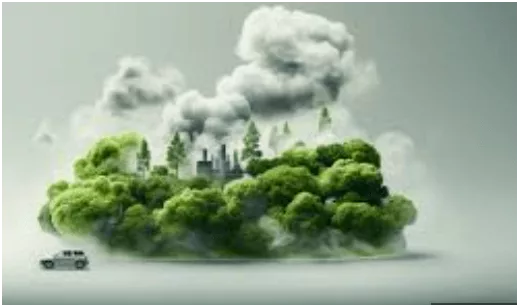UAE has announced a bold new national climate plan, pledging to cut its greenhouse gas emissions by 47% from 2019 levels by the year 2035.
This ambitious commitment was made ahead of the upcoming United Nations COP29 climate summit, underscoring the nation’s dedication to combating climate change and contributing to global sustainability efforts. As one of the world’s leading energy producers, the UAE’s pledge represents a significant step in addressing climate challenges while continuing to diversify its economy and energy portfolio. The new plan emphasizes initiatives across several key sectors, including the expansion of civil nuclear energy, increased solar capacity, and the development of advanced waste-to-energy technologies.
Central to the UAE’s strategy is the ongoing development of its civil nuclear energy program. The country’s flagship Barakah Nuclear Energy Plant has already become a cornerstone of its clean energy transition. With multiple reactors now operational, the plant is expected to provide up to 25% of the UAE’s electricity needs, significantly reducing the nation’s reliance on fossil fuels. The continued development of nuclear energy is a critical component of the UAE’s plan to meet its emission reduction targets, offering a reliable, zero-carbon energy source that complements other renewable energy initiatives.
In addition to its nuclear energy program, the UAE has made substantial investments in solar power. The country is home to some of the world’s largest solar energy projects, including the Mohammed bin Rashid Al Maktoum Solar Park in Dubai and the Noor Abu Dhabi Solar Plant. These projects have already helped the UAE increase its renewable energy capacity and reduce its carbon footprint. Moving forward, the nation plans to further expand its solar energy infrastructure, leveraging new technologies to enhance efficiency and storage capabilities. By prioritizing solar energy development, the UAE aims to achieve greater energy independence while reducing greenhouse gas emissions across its power sector.
Another key focus of the UAE’s climate plan is the development of waste-to-energy technologies. These innovative solutions involve converting municipal waste into usable energy, reducing landfill waste while generating electricity or heat. Waste-to-energy projects are particularly important in addressing the environmental challenges posed by growing urban populations and increasing waste production. The UAE has already launched several pilot projects in this space, and its new climate plan calls for further investment and expansion of waste-to-energy facilities. By adopting these technologies, the UAE hopes to create a more circular economy, where resources are reused and repurposed to minimize environmental impact.
The UAE’s climate commitment is not limited to energy production and waste management. The new national plan also outlines initiatives to enhance energy efficiency across various sectors, including transportation, construction, and industry. The transportation sector, in particular, has been identified as a major contributor to greenhouse gas emissions. To address this, the UAE is promoting the adoption of electric vehicles (EVs) and expanding EV charging infrastructure nationwide. Additionally, the government is investing in public transportation systems to encourage more sustainable commuting options. These efforts are aimed at reducing emissions from road transport and supporting the UAE’s overall climate goals.
In the construction and building sector, the dubai is implementing stricter energy efficiency standards and promoting the use of sustainable building materials. Green building certification programs, such as the Estidama Pearl Rating System in Abu Dhabi and Dubai’s Green Building Regulations, have been introduced to encourage developers to adopt more environmentally friendly practices. By improving the energy performance of buildings, the UAE hopes to reduce its overall energy consumption and lower emissions from this critical sector.
The industrial sector, another major source of emissions, is also being targeted for transformation. The UAE is encouraging industries to adopt cleaner production processes and utilize advanced technologies to reduce their carbon footprints. Carbon capture, utilization, and storage (CCUS) technologies are expected to play a key role in these efforts, helping industries capture emissions at the source and convert them into useful products or store them safely underground. The UAE’s experience with its Al Reyadah CCUS facility, one of the first commercial-scale projects of its kind in the region, will be instrumental in scaling up these technologies to achieve wider adoption.
Stay Connected: ”Your Source for the Latest News Updates“





